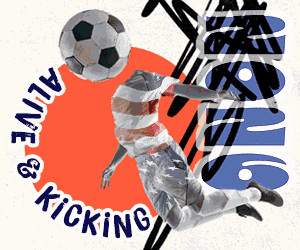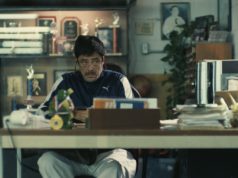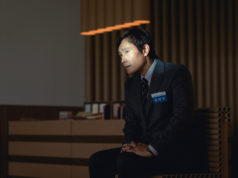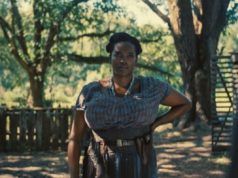A bit of news came down this past week related to Bully, which is still playing in Tarrant County. A federal district court judge threw out the lawsuit brought by the family of Tyler Long (one of the kids whose suicide is covered by the film) against Murray County High School. When I wrote up my review of the movie, I wondered whether his suicide (and many teen suicides in general) might be due to causes more complex than bullying. It turns out Tyler Long was suffering from both bipolar disorder and Asperger Syndrome, though the family disputes the bipolar diagnosis. Because I tend to avoid early reviews of a movie before I write up my own review, I missed an exchange about the film’s omission of this fact that played out in the web pages of Slate and Entertainment Weekly. Since both bipolar disorder and Asperger’s are associated with higher risk of suicide, it seems plausible that one or both conditions might have been the underlying cause of both Tyler being bullied and his suicide. In any case, Judge Harold Murphy didn’t find enough cause for the suit against the Murray County school to go forward.
I have a hard time working up much outrage over this. School districts should pay when their negligence causes kids to be hurt or to take their own lives, but there doesn’t seem to be enough evidence for that in this particular case. The insane thing is, the statute of limitations for these lawsuits is one year in most states. Just one lousy year for grieving parents to try to make a levelheaded decision about whether they should sue. That’s wrong.
Since I am a film critic and not an anthropologist, I thought I’d make up a list of movies that take on bullying as a subject. As I said in my review of Bully, there are lots of films that come at the subject from all angles. I daresay you’ll find both more food for thought and more entertainment value in most of these films than in Lee Hirsch’s documentary.
Carrie (1976)

The ur-text for all movies about bullying victims who strike back, this is the one Brian De Palma thriller that’s neither riddled with gaping plot holes nor obviously the product of a filmmaker with massive issues with women. Carrie is bullied both at home by her religious mother (Piper Laurie) and by the girls at school for being poor and different. The result spawned a thousand crappy horror flicks culminating on prom night, but it’s still done with De Palma’s typical sinuous grace. There have been sporadic attempts to make this into a Broadway musical, but I can’t wait for the upcoming remake by Kimberly Peirce (more on her further down), starring Chloë Grace Moretz and Julianne Moore.
Back to the Future (1985)
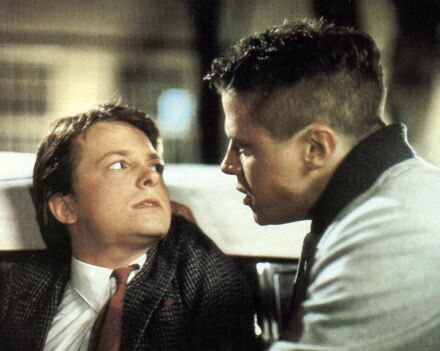
Because this list would be incomplete without Biff Tannen.
Heathers (1989)
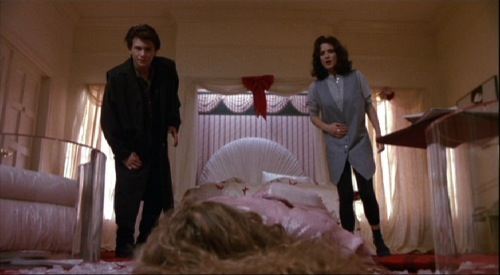
The movie that established Winona Ryder as the cool loser chick of her generation. There are more than a few girls who’d quail at Heather Chandler’s withering threat of social death directed at Veronica, but Veronica responds by inflicting actual death on her. The murder solves nothing, as the old order re-asserts itself. This stylish and wickedly funny black comedy sees how venal and meaningless is the pursuit of high-school popularity.
Dazed and Confused (1993)
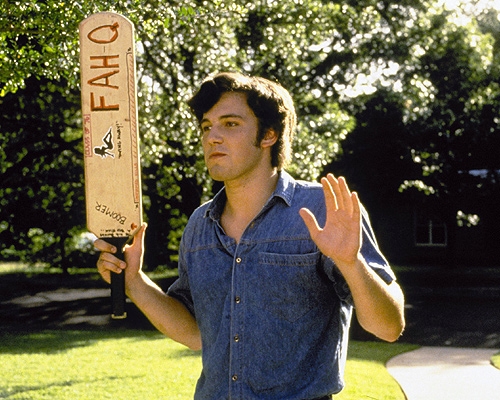
One answer to being bullied is to have a mama who packs a shotgun. That’s one lesson that you take away from Richard Linklater’s seminal high-school movie. Others: Ben Affleck was never better cast as the bully-in-chief, and Parker Posey isn’t far behind him as the girl version of him. Oh, and Mike Newhouse (Adam Goldberg) and his plan to punch the bully and then “play defense”? That’s a bad idea. Really, really bad.
The Craft (1996)
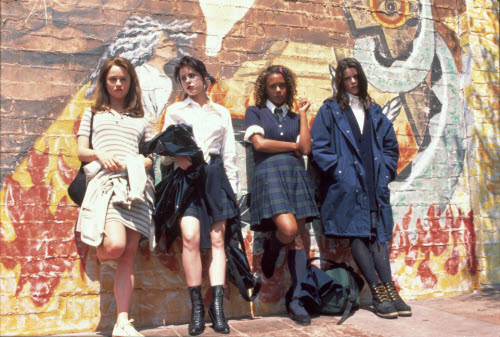
Four Goth-y prep school girls get bullied because they’re Goths, but when they acquire actual powers of witchcraft, they start using them to viciously retaliate, and when the troubled heroine (Robin Tunney) tries to stop them, they turn on her as well. This movie is ragged, but its best moments are spooky and powerful stuff. Director Andrew Fleming has gone on to a fascinatingly uneven career (Dick, Hamlet 2).
Romy and Michele’s High School Reunion (1997)
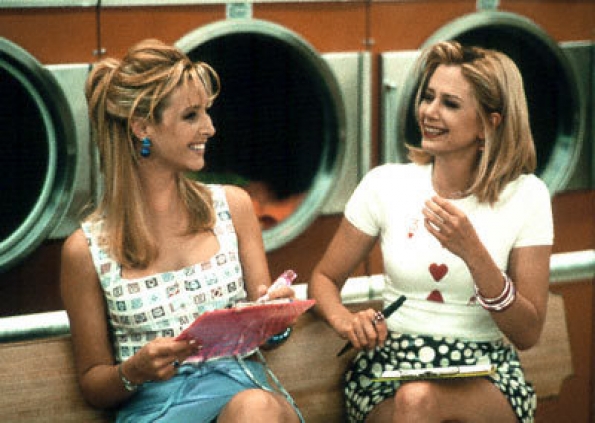
David Mirkin’s so-fashionable-you-could-die comedy (with a killer climactic dance number) stars Mira Sorvino and Lisa Kudrow as high-school outcasts who show up at their reunion to impress their former tormentors with the fabulousness of their lives, only to find that the “A” clique still treats them like crap until one of their own number (who’s probably gay) betrays them. Meanwhile, Romy and Michele discover that they tormented the cool loser girl Heather (Janeane Garofalo), who in turn constantly insulted fat girl Toby (Camryn Manheim). When Toby confronts her about this, Heather is ecstatic to discover that she had power over someone. Romy concludes that “I think everybody made someone’s life hell in high school.” True enough, that one.
In the Company of Men (1997)
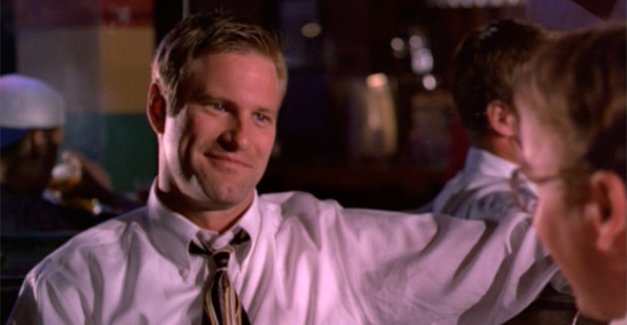
An anomaly on this list, this is about workplace bullying rather than schoolyard bullying. At the time, this was hailed as a striking debut by filmmaker Neil LaBute. It hasn’t aged well, especially since LaBute hammered the same themes repeatedly in subsequent movies and stage plays until they became exhausted. (Also, the stunt that the loathsome main character plays with the intern would be grounds for both sexual harassment and racial discrimination lawsuits.) This is now mainly regarded as the movie that launched Aaron Eckhart’s acting career.
Boys Don’t Cry (1999)
XXY (2008)
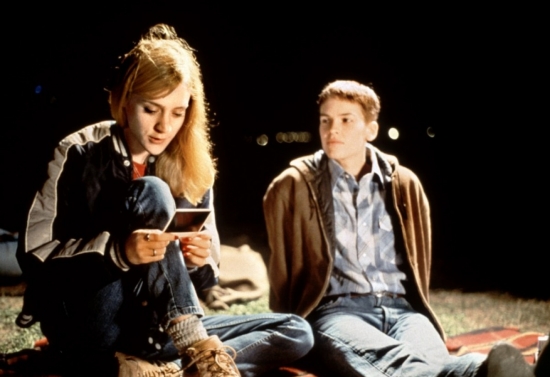
Interesting that there aren’t any great movies specifically about gay kids being bullied, but there are these two films about transgender kids. Kimberly Peirce’s Oscar-winning film (based on a real-life case) is about a girl passing herself off as a boy, while Lucía Puenzo’s Argentinian movie (based on a short story) is about an intersex kid. In both of these, the bullying shades over into rape. Puenzo’s film is sensitive and accomplished, but it’s Peirce’s masterpiece that packs the real wallop.
The X-Men series (2000-present)
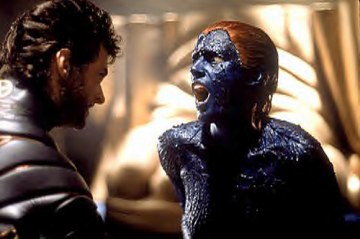
Of all places, here’s where the bullying gets overtly political. The schoolyard taunting of the mutant kids is echoed in the mistreatment of the mutant population by society at large, and the bullying plays into the larger theme that the mutants are an oppressed minority. Especially in the first two films (both directed by gay Jewish filmmaker Bryan Singer), this theme strikes all manner of emotionally resonant sparks.
The Harry Potter series (2001-2011)
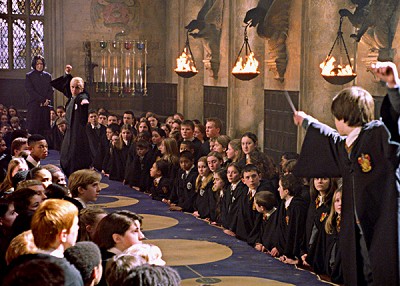
You’d think that as a guy who was bullied himself as a kid, Professor Snape would stand up for the bullied students. Yet because Harry is the son of his former tormentor and looks so much like his dad, Snape’s content to let Draco Malfoy have his way. The fifth movie in the series bungles the revelation of James Potter as a schoolyard bully, which really disturbs both Harry and us in the book. Like most bullies, Draco is essentially a coward, but his cowardice winds up saving him when it comes time for him to kill Dumbledore. Cowardice will do that occasionally. Of course, the kid who’s lowest on the bullying food chain is Neville Longbottom (Matthew Lewis), and he comes up big at the very end of the saga.
Bowling for Columbine (2002)
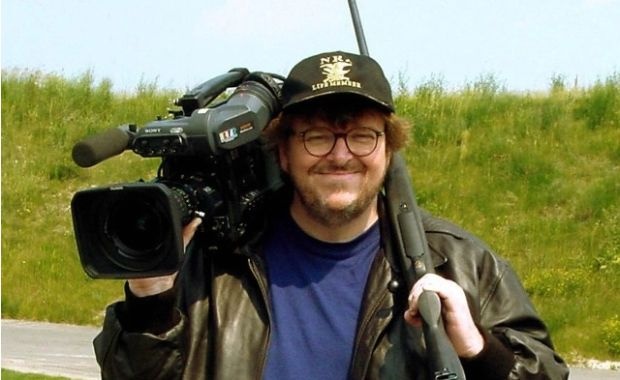
Michael Moore’s documentary is primarily about guns, but he takes the Columbine school shootings as an example of bullied kids striking back inappropriately because they have access to firearms. If they didn’t have weapons, he reasons, maybe they would have found a better way to deal with their torment. Moore’s reasoning isn’t flawed, but he misapplies it spectacularly to Dylan Harris and Eric Klebold, criminal psychopaths who probably would have done bad things even if they’d been treated well in high school. Moore’s comic touch is at its best here, and his grandstanding is at its worst.
Mean Girls (2004)
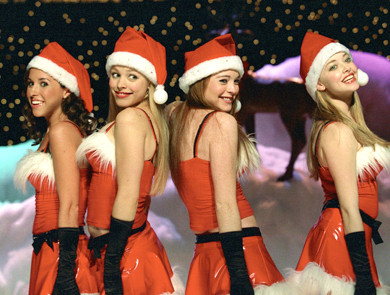
The best of the advice book movies. The cast is killer, with Lindsay Lohan giving a really good performance as an insecure teen and Rachel McAdams as the scary popular girl, with Amanda Seyfried and Lizzy Caplan backing up. Yet Tina Fey’s script puts too much faith in the grown-ups, when bullying behavior often is reinforced by behavior in the adult world. Oddly enough, the director of this movie, Mark Waters, is the brother of Daniel Waters, who wrote the script for Heathers.
Let the Right One In (2008)
Let Me In (2010)
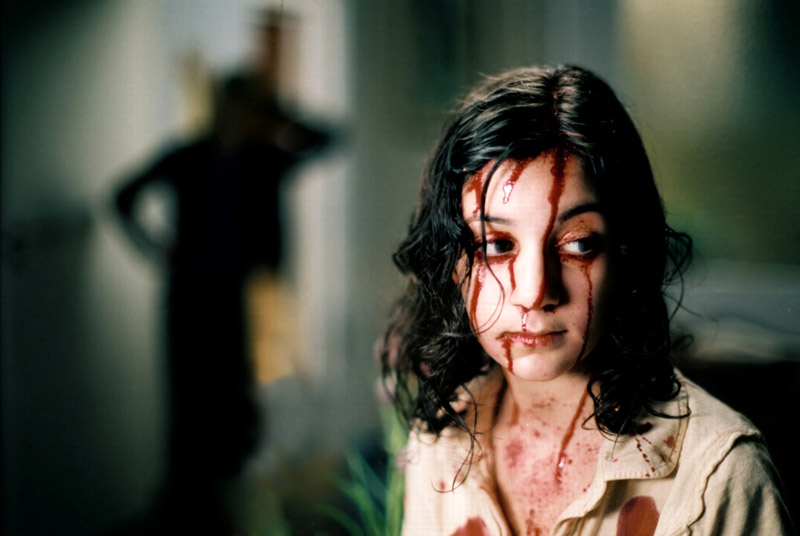
The Swedish original gains points for depicting the one kid who’s part of the bullying pack because he knows he’ll be the target of the bullies if he doesn’t join them. The American remake gains points for showing the chief bully getting bullied himself by his older brother. Both movies give us the satisfaction of the bullies getting bloody comeuppance from their victim’s girlfriend (she’s a vampire), but they also leave us uneasily wondering what comes afterwards. These are the most romantic movies on this list.
Cracks (2011)
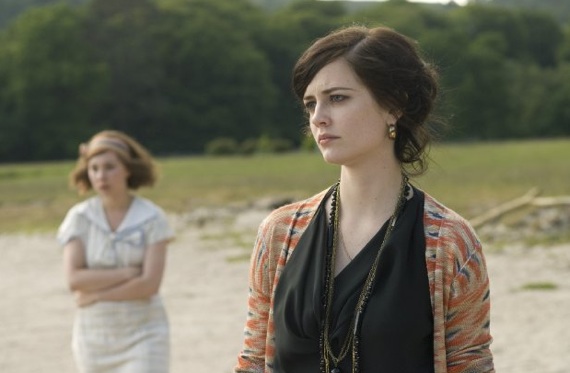
This movie is told from the bully’s point of view, one of many ways in which it plays havoc with familiar tropes. Another is the way everything changes once the bullied girl winds up dead, and one girl’s search for justice is blocked by a school looking to cover its own ass (as institutions infallibly do). I blogged about this film earlier, but it bears repeating that there are great performances from Juno Temple and Eva Green.
Chronicle (2012)
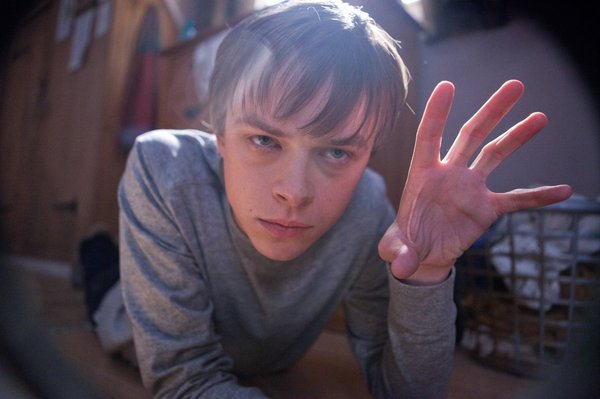
With this, we come full circle. The echoes of Carrie are so unmistakable, I referenced De Palma’s film in my review of Josh Trank’s hit. Like Carrie, Andrew (Dane De Haan) is a telekinetic who’s bullied both at home and at school, and he lashes out violently at his abusive dad, the school bullies, and the entire city of Seattle. It’s easy to say the superpowers or the bullying make Andrew into a monster, but he seems weird and creepy well before the proceedings begin. Many movies and TV shows portray the social outcasts as misunderstood souls who’d reveal their inner beauty if only the normal kids would extend a bit of kindness to them. This one understands that sometimes the outcasts are outcasts for perfectly good reasons. You can argue that films like these enforce the status quo, but they still do argue for treating the outcasts well, because even if he can’t break your jaw with his mind, he might still try to do it the old-fashioned way.


